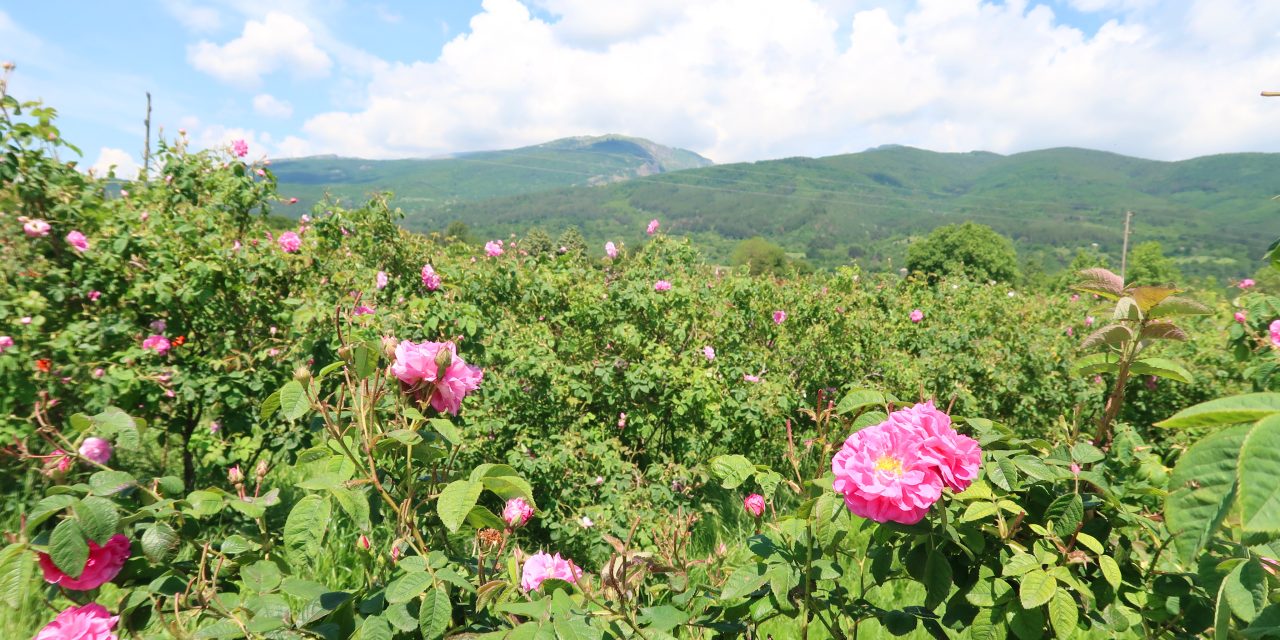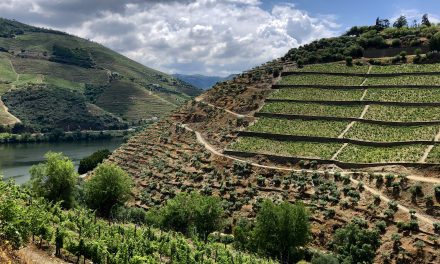Bulgaria is the world’s largest producer of rose oil, which is most prevalently used in perfumery and cosmetics. Nowadays, the centuries-old industry is struggling due to a shortage of workers, potential new EU regulations, and a general lack of national policy.
The moment one enters Bulgaria’s rose valley, the origin of the region’s name becomes evident. Endless pink rose fields stretch out in neat rows on both sides of the highway. The floral fragrance in the air is impossible not to remark on. It’s barely 8 am, and the pickers are already wrapping up their work for the day. They have likely been here since 5 am, trying to pick as many roses as possible before the sun rises and the rose oil starts evaporating from the buds.
The region of the rose valley is situated between the majestic Stara Planina (also known as Balkan Mountains) and Sredna Gora (Middle Forest Mountain). It stretches for 10-12 kilometers and is 95 kilometers long. This small part of the country is responsible for more than 60% of the world’s rose oil production.
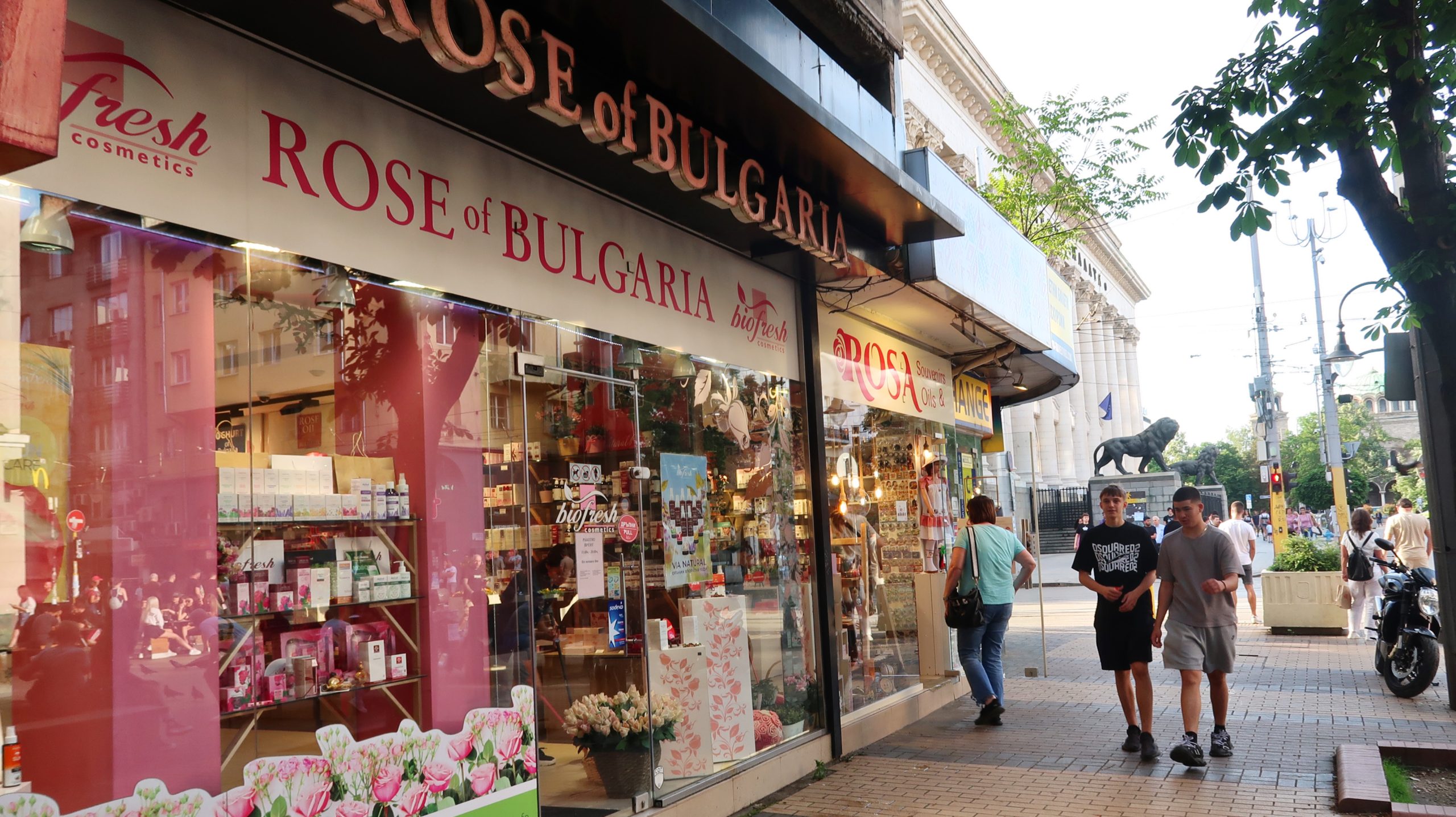
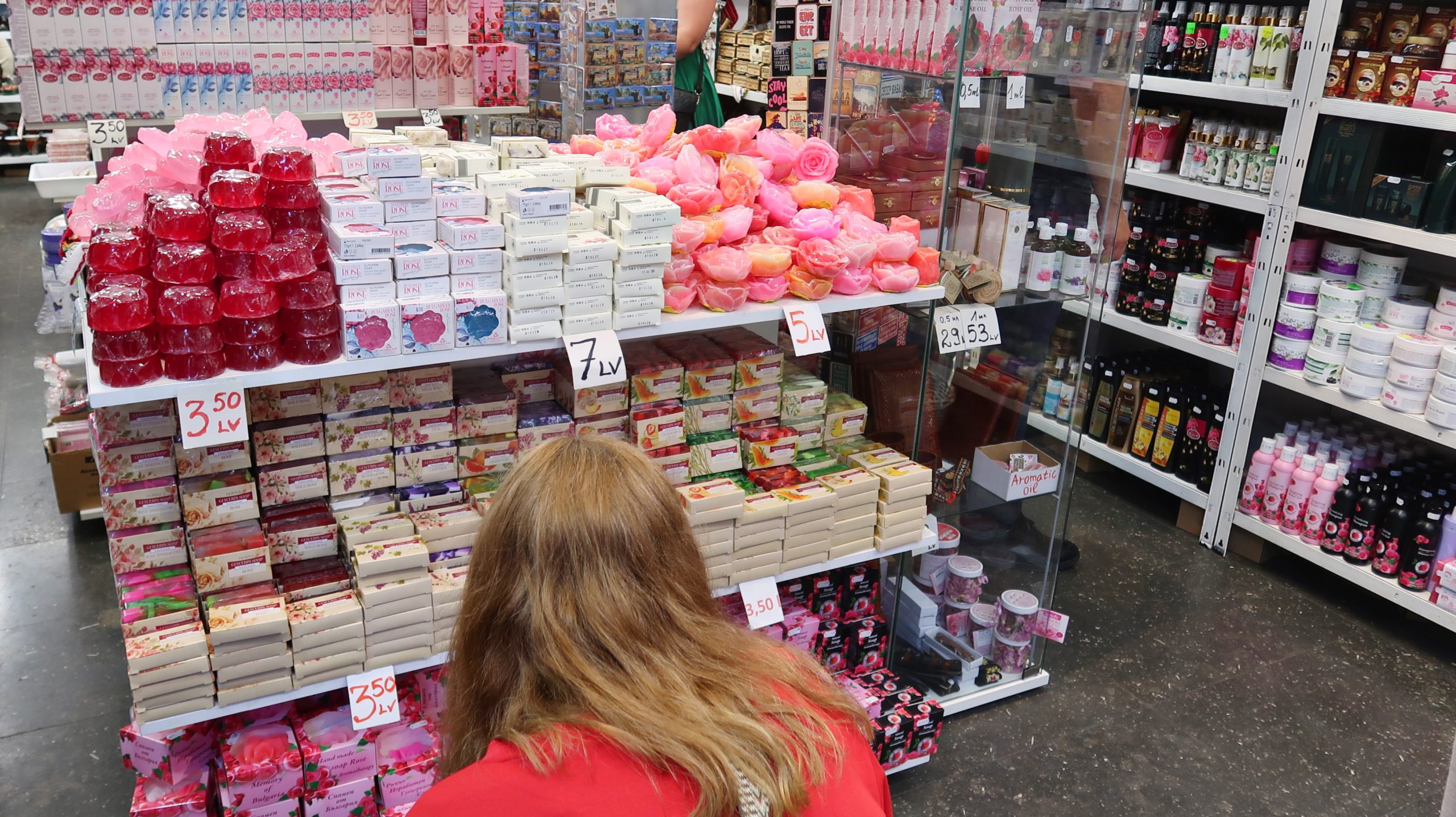
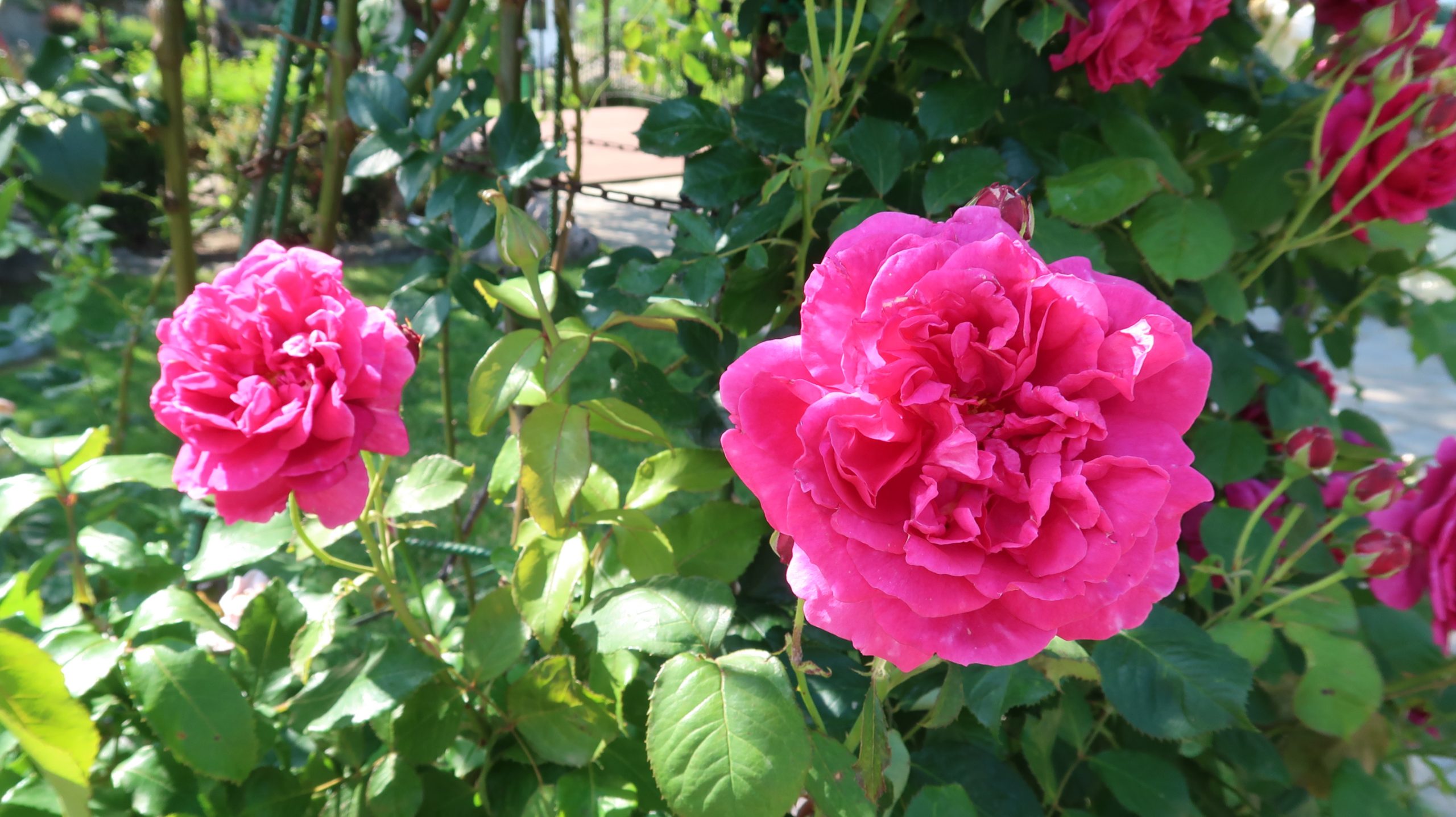
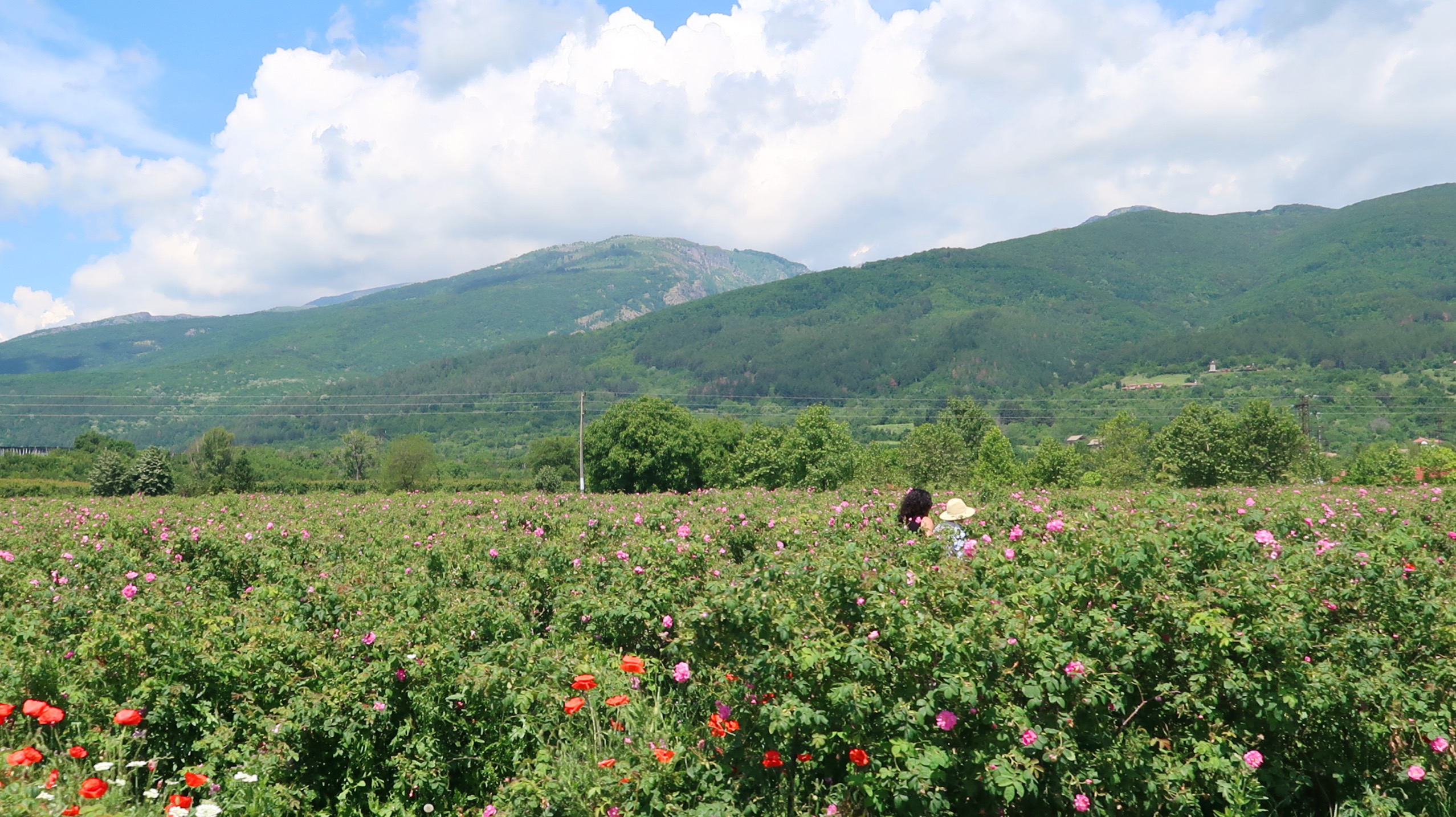
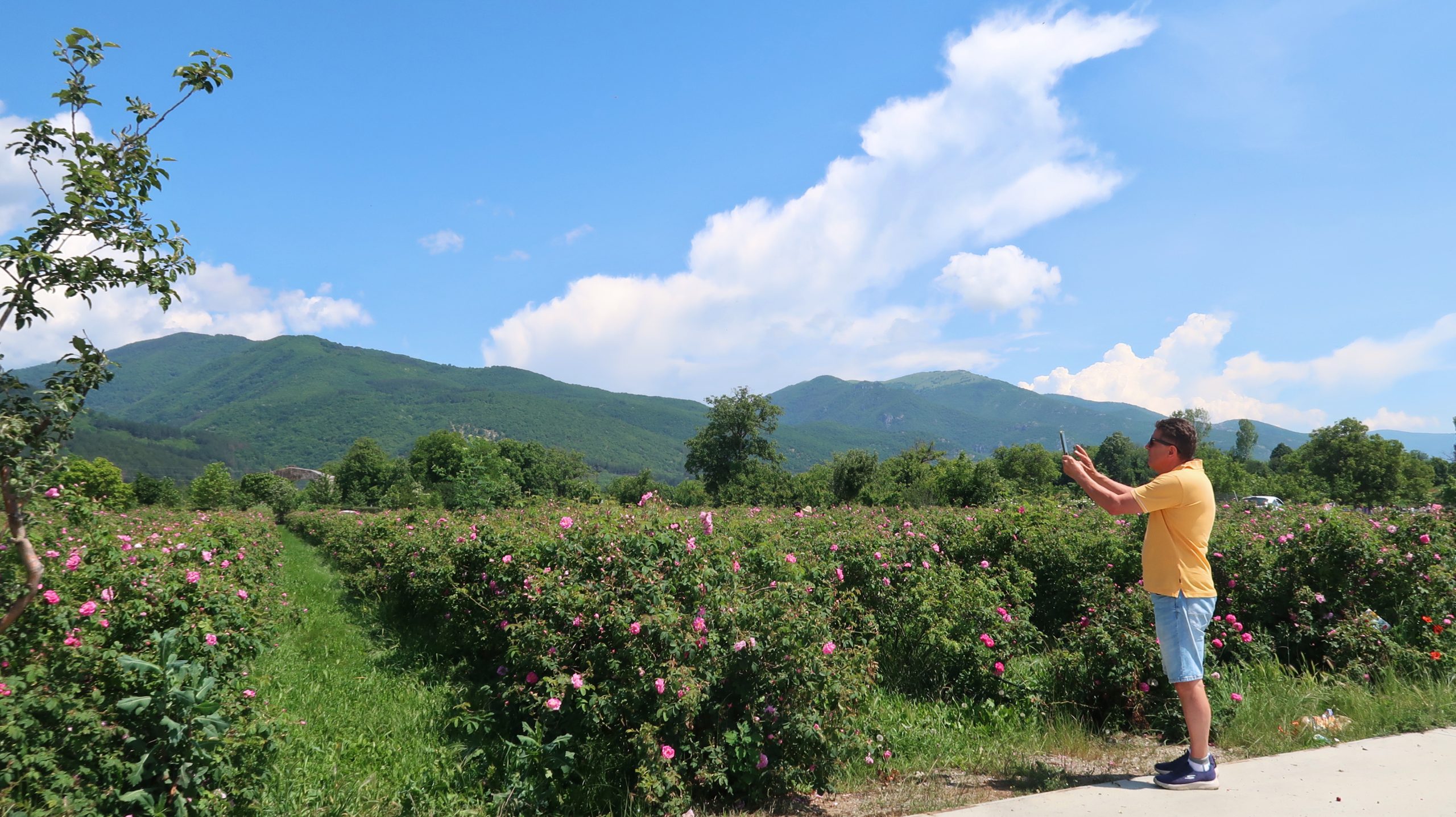
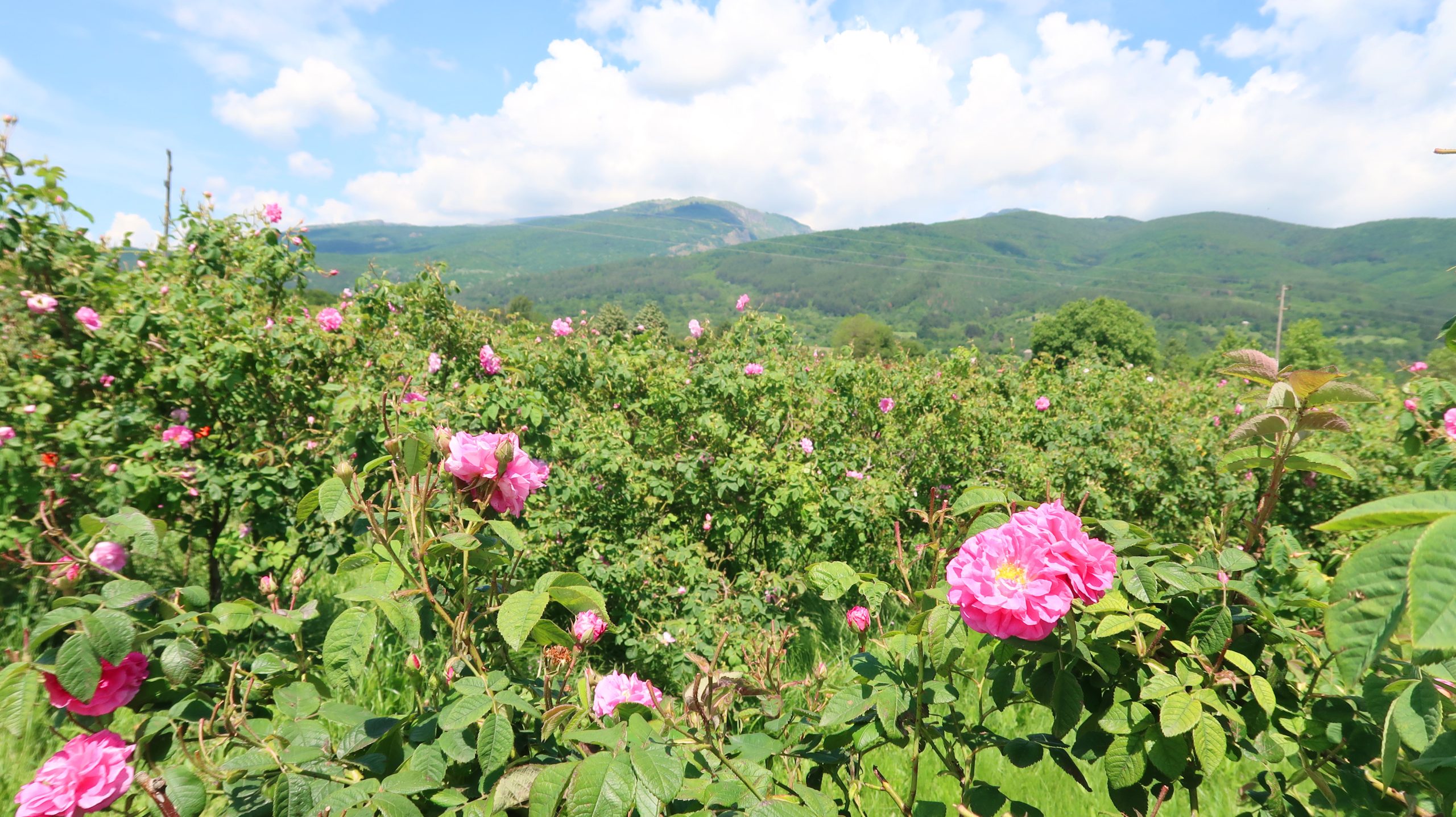
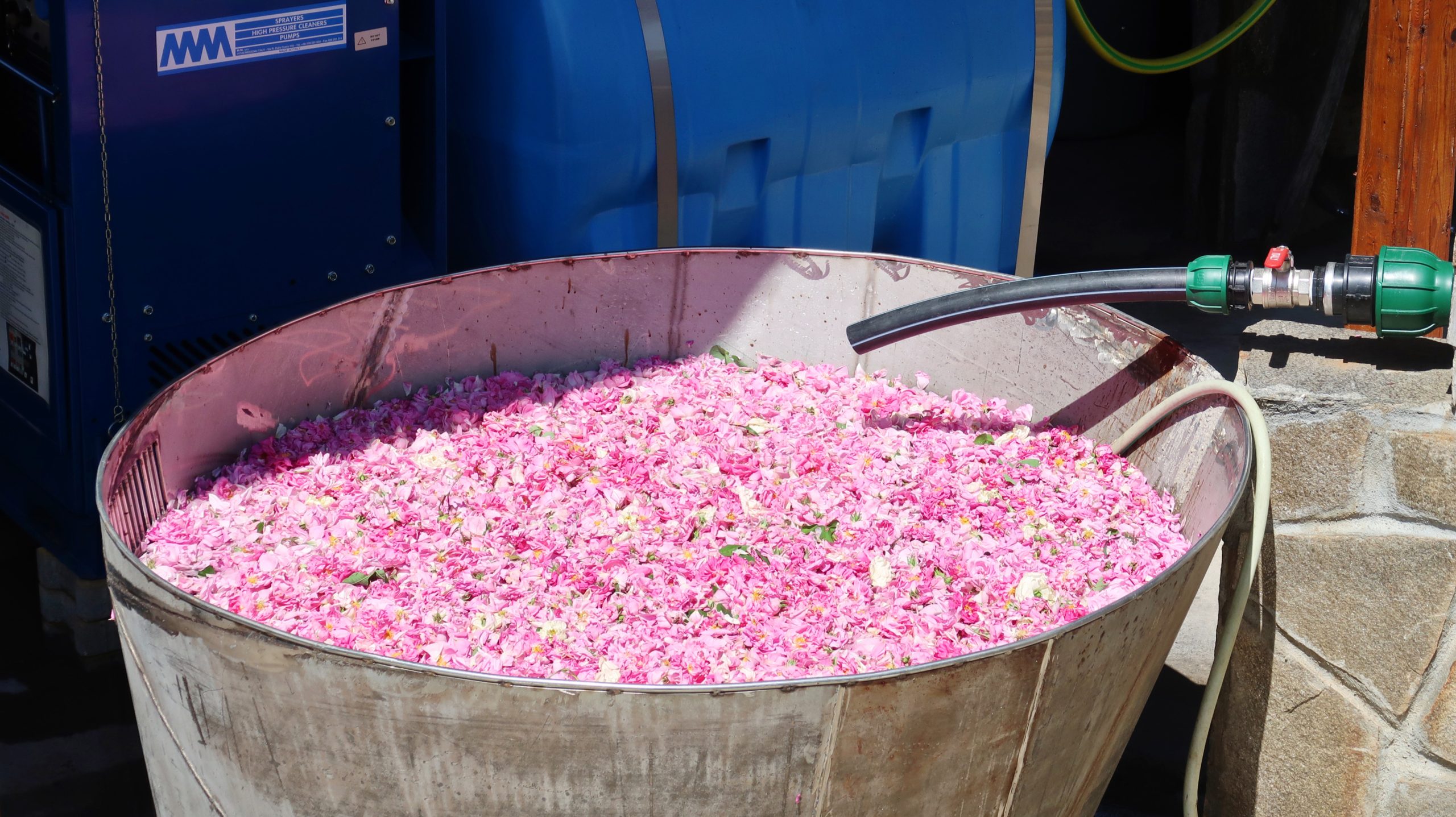
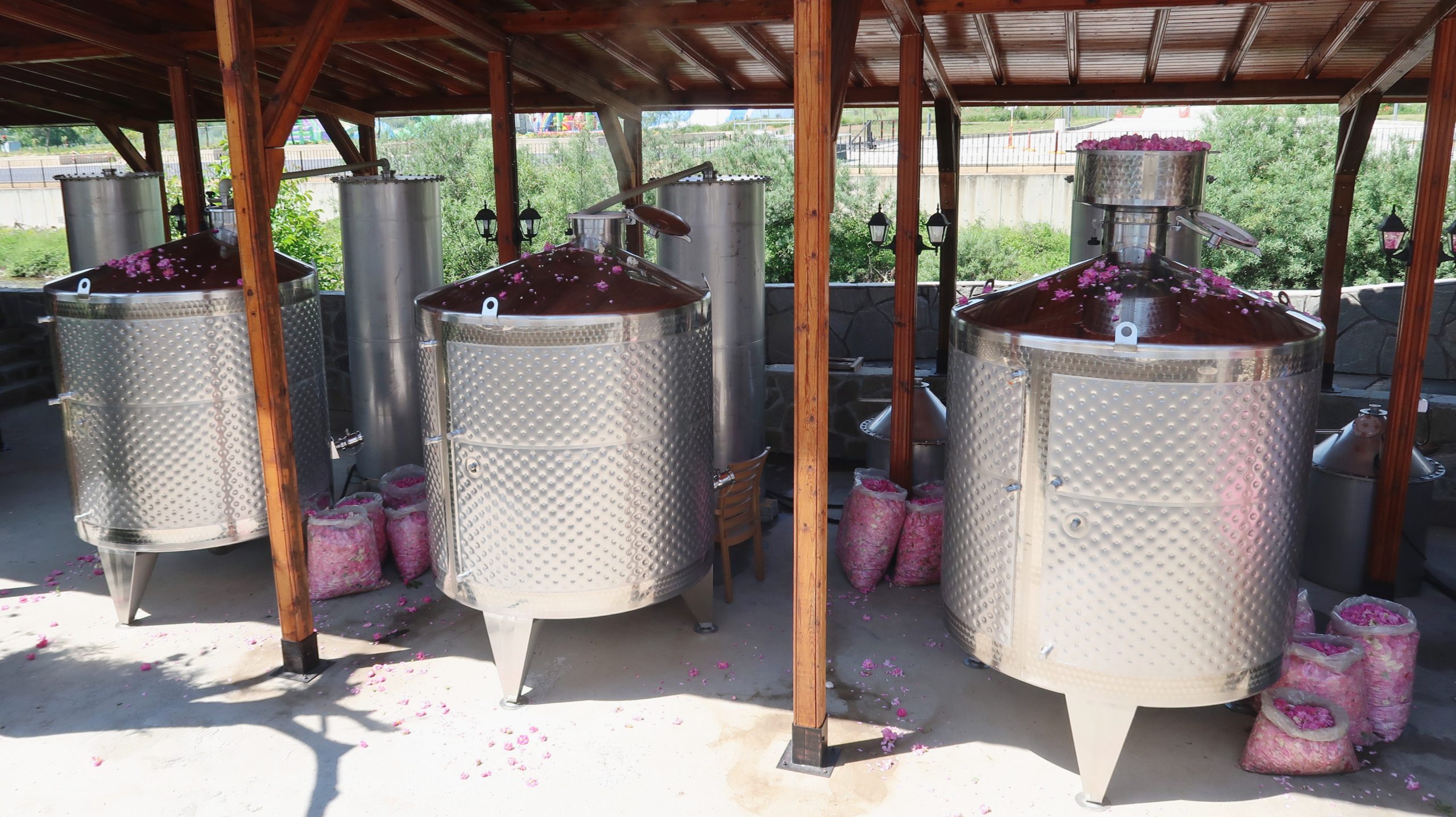
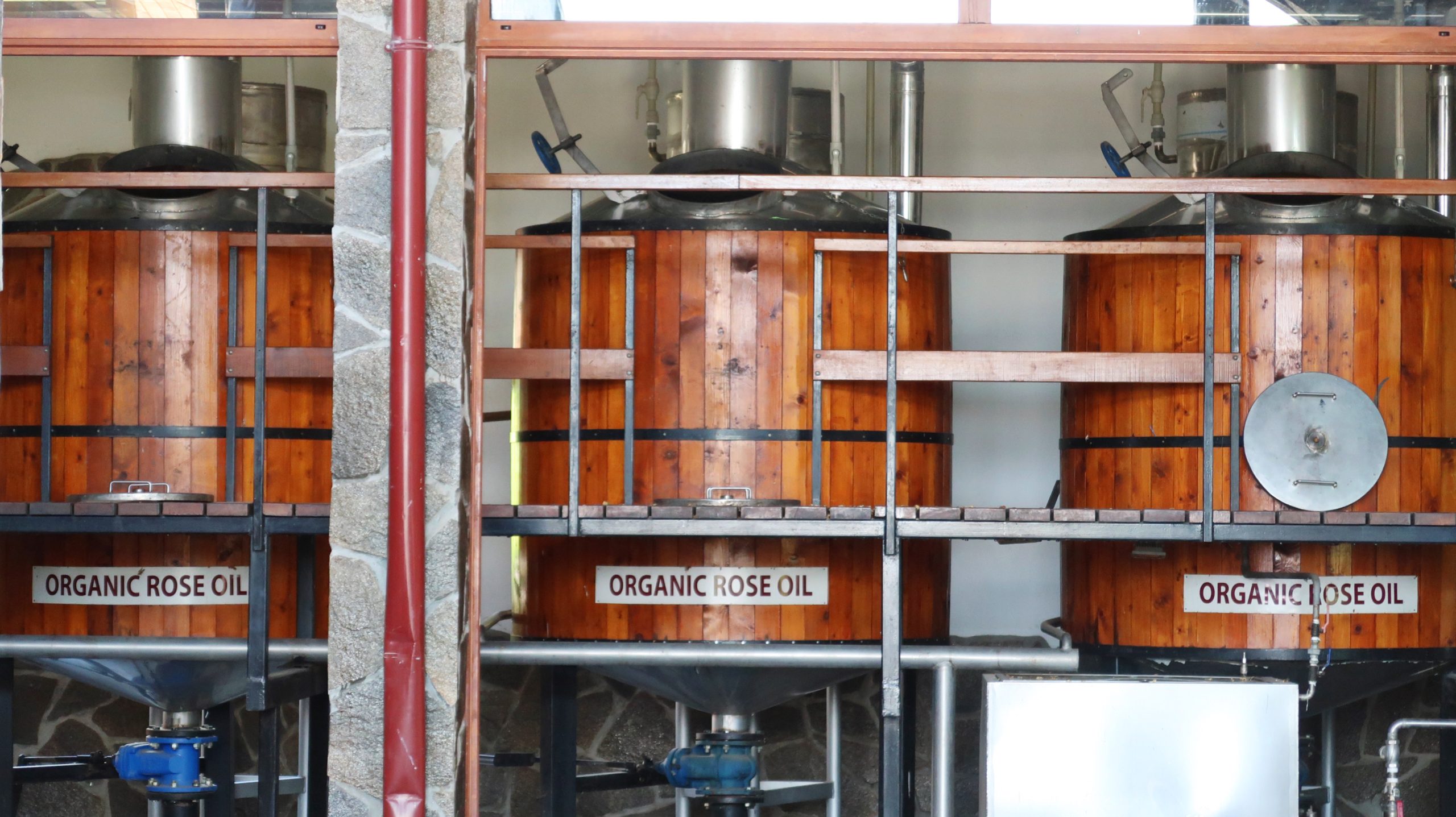
The cultural and economic importance of the Bulgarian rose
The oil-bearing rose (Rosa Damscena) holds significant importance to Bulgarians, not only economically but also in terms of heritage. While it was originally imported into this region from Damascus, Syria, the rose found its perfect climate in the rose valley centuries ago.
“Historical evidence reveals a strong presence of the rose culture in Bulgaria since 5th–3rd century BC,” says Tulina Loulanski, a heritage studies researcher. She has conducted extensive research on the heritization of the rose in Bulgaria. “During the First and Second Bulgarian Kingdoms, and until the time of the modern Bulgarian state, the rose was recognized for possessing rich symbolic power and was widely used in Thracian rituals and ceremonies.”
With time, the Bulgarian rose and rose oil have grown into important symbols of national identity and pride. Thousands of tourists visit in May and June to enjoy the sight and fragrance of the blooming flower fields. An annual rose festival, with over 115 years of tradition, is held in Kazanlak. The main part of the festivities take place on the first Sunday of June. They include traditional rose picking rituals, the crowning of the “rose queen” and a big parade down the main street.
Nowadays, the valley continues to be actively used for growing oil-bearing roses and the Bulgarian rose industry has done its best to adapt to the 21st century. At the moment, according to the Register of Rose Growers, there are 2,938 farmers growing Rosa Damascena and Rosa Alba. This encompasses 5,360 hectars of rose fields. Rose oil, due to its unique scent and fixative properties, serves as a base in the production of many cosmetic products and perfumes. Bulgaria is the undisputed leader in this market.
And yet, despite its high quality and status, there are many reasons why the centuries-old industry is struggling today.
The impact of climate change
“We are very dependent on the weather conditions.” shares Radoslav, a guide at Damascena Ltd., the first private rose distillery in Bulgaria, located in Skobelevo, a small village in the very heart of the rose valley. ”There should be a consistent balance between sun and rain. If there is too much rain, many buds appear but don’t bloom. And if there is too much sun and too little rain, the rose blooms very quickly and all at once, as it has for the past few years.”
The unnaturally high temperatures have impacted the start and duration of the rose-production season. “Since April was very warm this year the roses bloomed two weeks earlier than usual. Most likely, the season will end early.” The early start of the collection results in the need for quick organization and finding enough rose pickers and harvesting the fields promptly. However, concerning statistics indicate a shortage of labor in the fields, which has unfortunately become chronic in the last few years.
Chronic rose picker shortage
According to the Ministry of Agriculture, in 2022, the average flower yield per hectare of roses was 282 kg, which is far below the technological possibilities of the distilleries. The reason for that is the lack of people working on the fields.
“The problem is rooted in the fact that year-round production cannot be ensured, and hence the workers disperse after the end of the active season. A large part go abroad, then they cannot be reorganized. Next comes the search and training for new workers. Expertise is the key to good product quality,“ commented Teodora Krasteva, executive director of the Bulgarian Association of Greenhouse Producers, in an interview with Agri.bg, ”Our manufacturers have a high cost price, a lot of money and work is invested to achieve quality, planning work is also needed, and finally, a poorly trained staff can do serious harm. It’s no coincidence that experienced workers are literally categorized by competence, there are cucumber pickers for example and, believe me, this is a responsible position, essential for the success of the business.”
Many harvesters choose to work in France during the harvest season due to higher pay. Bulgarian producers face challenges with competitive pricing and require more support from the government.
It’s not like there haven’t been attempts to mechanize the process either. Back in Damascena, Radoslav gestures to an abandoned machine parked next to the rose field. “This was our attempt to make a rose harvester. But it doesn’t work. The problem is that the rose doesn’t bloom in rows, it blooms randomly and chaotically. The machines typically end up bruising it, causing the petals to fall off. It must capture the entire flower, together with the bud, and rotate it in a specific way. The other thing is that the machines hurt the bushes. It’s precise work. In the future, maybe if better artificial intelligence versions are invented, we’ll see if they can work for us.”
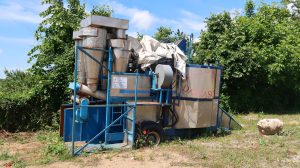
“Damascena 1” – prototype for a rose harvester
New regulations from the European Commission
Something that recently stirred up the industry was a new regulation that was proposed in 2022 by the European Commission, which had intended to label rose oil as a chemical substance. At the time Bulgarian producers expressed their fear that the warning labels will affect the centuries-old tradition of rose oil production. The Bulgarian Prime Minister Nikolay Denkov, who is a professor of physical chemistry at the University of Sofia, went as far as to call the legislation “not as scientific as it should be”. “As a chemist, I say there is a problem with what is being proposed because when we discuss whether something is harmful, we need to look not only at the substance but at the concentration,” he explained.
According to Radoslav, the more likely function of this regulation was to lower the prices of the rose products. “During COVID-19, since rose oil is not an essential commodity after all, its price fell. Accordingly, buyers got used to a lower price. After the pandemic passed, our merchants said ‘that’s enough’ and raised prices again. However, the buyers wanted to continue paying less.” he says. “Rose oil is a completely natural product, for centuries people have been using it without any problems.”
The regulation was overturned at the end of 2022, but it included a review clause mandating the Commission to conduct further analysis and present it within four years. The passing of the legislation would impact not only Bulgaria but also France, Italy, and Spain, as they are fellow major essential oil producers.
Despite recent setbacks, this small victory is giving rose producers hope for the future. They anticipate that the industry, which is a source of national pride and income for numerous families in the region, will gain more attention and become a priority in national policy.
